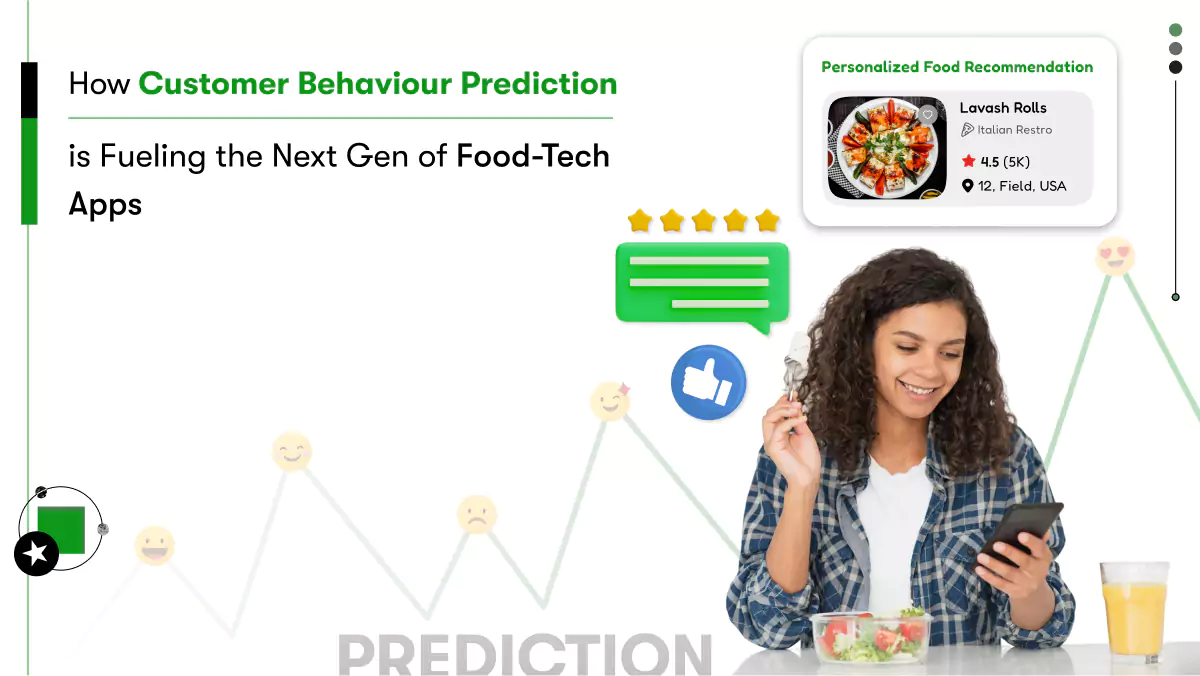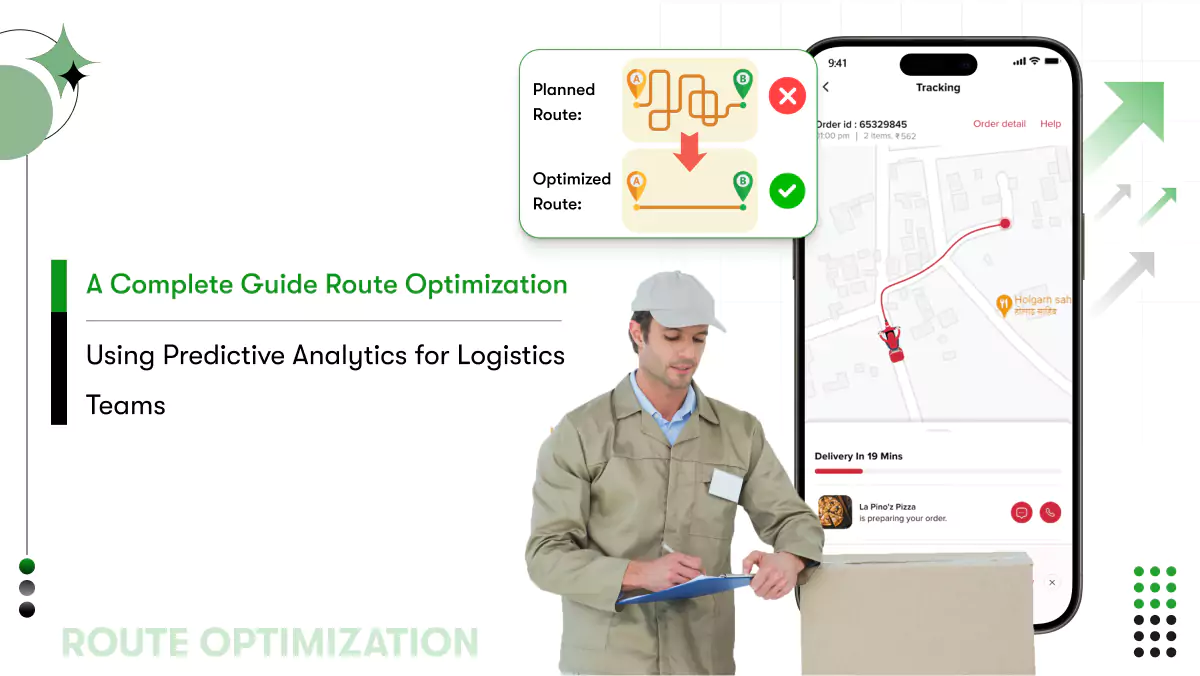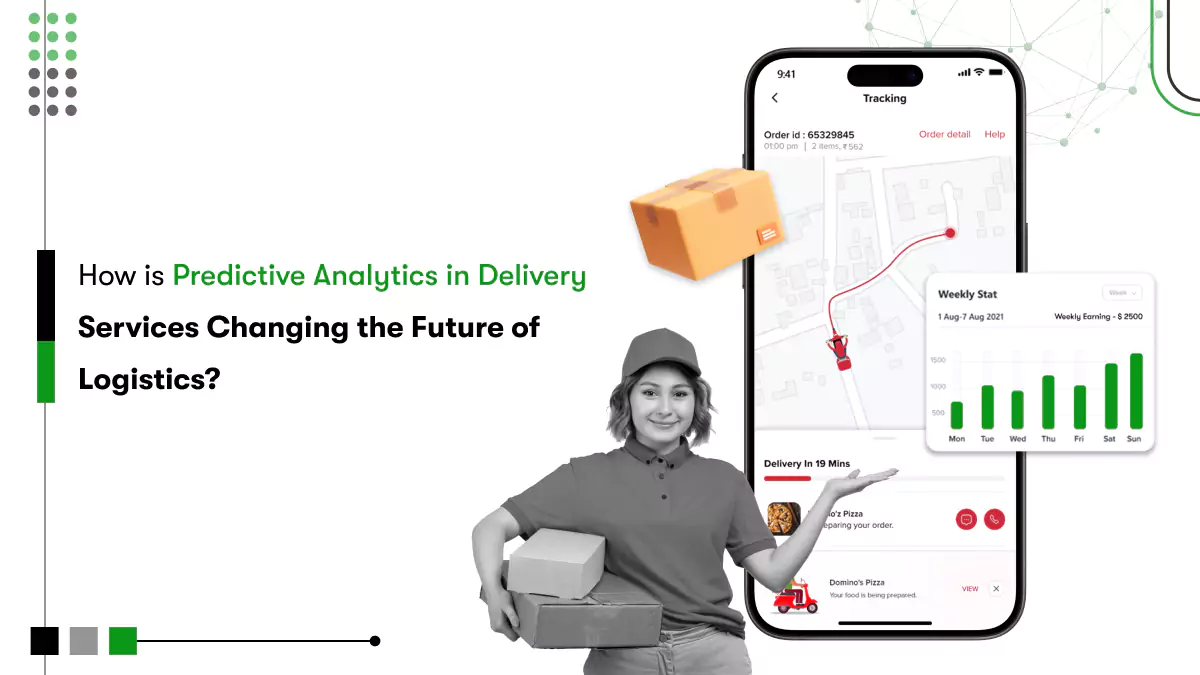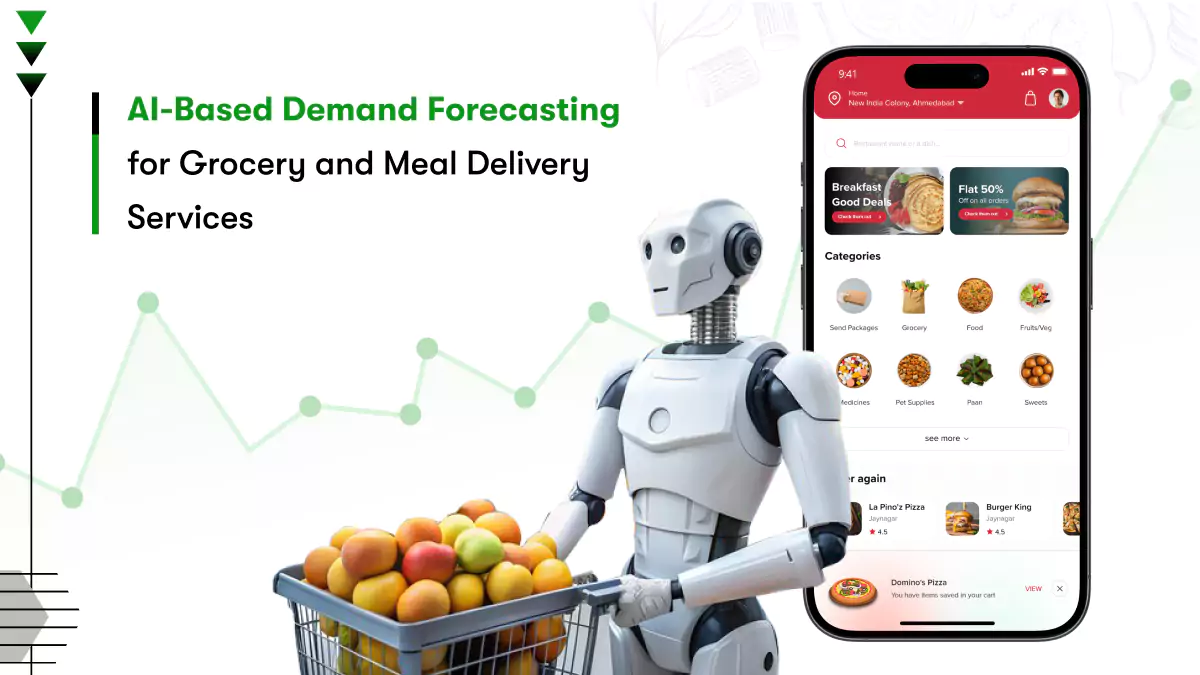AI, ML, Blockchain, and other technologies play a pivotal role in healthcare delivery, patient care, and management of processes. To create a more efficient, connected, and patient-centric environment, digitization in healthcare is necessary.
This guide will explore how digital transformation in healthcare is redefining the sector. Join the voyage and learn how digital transformation is necessary for healthcare in 2023.
Before we proceed, let’s understand what digital transformation means for the healthcare industry.
What is Digital Transformation in Healthcare?
In healthcare, digital transformation enables doctors, physicians, and researchers to use emerging digital solutions to improve aspects of a healthcare service, such as patient diagnosis, patient treatment, operational management, etc.
For example, with the rise of on-demand services with the telehealth platforms like OnlineDoc24, patients can instantly connect to a licensed medical professional remotely. It provides patients with treatment plans and immediately reduces the dangers in chronic situations.
Some exciting market stats reinforce that digital transformation is revolutionizing the healthcare industry.
Healthcare Digital Transformation Market Stats

Global digital transformation in the healthcare industry is projected to reach $65.2 billion by the end of 2023. The market is anticipated to grow at a 14.5% CAGR from 2023 to 2033, reaching $253.6 billion.
Digital transformation in healthcare is in its initial days. It is not wrong to say that it can potentially revolutionize the healthcare delivery system. Let’s see how!
How is Digital Transformation improving the Healthcare Industry?
Digitization in healthcare has opened up a new era of possibilities that meet patients’ expectations, automate administrative tasks, and enhance patient care. Around the world, there is a lack of healthcare personnel, and more people need healthcare solutions every day.
According to WHO, when we reach 2030, there will be a need for 10 million healthcare professionals. This calls for robust and flexible systems, which is why the digital transformation of the healthcare industry is crucial.
Let’s look at the many benefits of digital transformation in healthcare.
Prevent the onset of chronic illness
Every year, 41 million people die of noncommunicable diseases. It accounts for 71% of the deaths.
Digital transformation solutions such as AI, ML, and data analytics can help in such scenarios by helping with early detection, personalized treatment, and healthcare management. By analyzing patient data, these systems can find possible risk factors and early warning signs of chronic diseases. Early discovery lets doctors and nurses act quickly and take steps to prevent it from happening again.
Automation of administrative tasks
Digital technology’s usage in healthcare might enhance procedures, resource sharing, and patient care. Healthcare providers can spend more time caring for patients and fostering stronger connections by automating repetitive operations like scheduling appointments, mailing invoices, and maintaining records.
The digital transformation in healthcare makes patient data available across systems and offices. Thus, authorized healthcare providers can access critical patient information at the moment of care thanks to interoperability between EHRs and HIEs.
Doctors and nurses can diagnose and develop treatment plans more quickly and accurately with easy access to a wealth of patient information.
Taking care of the patient’s requirements
Thanks to healthcare industry-altering digital technologies, Doctors can now efficiently address their patients’ demands. Thanks to telemedicine systems and virtual healthcare solutions, patients may now schedule appointments, communicate with their physicians in real-time, and get healthcare services no matter where they reside.
After discussing its benefits, it’s time to examine the emerging technologies critical in digitally transforming the healthcare industry in 2023.
What Technologies are Driving Digital Transformation in Healthcare?

Cutting-edge technologies like AI, ML, Blockchain, Cloud Computing, and IoT are the key technologies transforming the future of healthcare. These technologies are bringing on exuberant digital transformations in the healthcare industry.
Let’s examine how these technologies improve patient care, make operations more efficient, and encourage new ideas. With real-world examples, we’ll see how these tools can change the healthcare industry and open up a new era for healthcare administration.
Also read: Healthcare App ideas to checkout in 2023
Healthcare Transformation: AI and ML for Diagnostics and Personalized Care
AI and ML are at the forefront of digital transformation in the healthcare industry. In addition to changing conventional healthcare methods, these new technologies are creating a new era of accuracy, efficiency, and patient-centered care. You can now utilize AI and ML to improve patient outcomes, find out what’s wrong faster, do medical research, and make paperwork more manageable. There are many ways in which AI and ML can transform the healthcare industry; let’s have a look at some of them:
Natural Language Processing (NLP):
In healthcare, NLP-driven Conversational AI is utilized as the first Point of Contact. These chatbots support patient requirements by answering their queries and collecting critical data. These Chatbots make it easier to talk, set up appointments, and collect personalized health information, improving how hospitals and other medical institutions provide healthcare services to patients with the help of AI.
Patient Diagnostic:
This technology uses machine learning and data analytics to analyze and interpret complicated medical information quickly. Using AI and ML, medical professionals can make better diagnoses, choose the right treatments, and help patients get better faster.
Google’s DeepMinds: Using AI and ML in Diagnostics
DeepMind Health at Google uses artificial intelligence to look at retinal pictures for eye diseases such as diabetic retinopathy and age-related macular degeneration. Its accuracy is on par with human experts, so it can find problems early and start treatment immediately. The AI system makes diagnosing easier, leading to better patient results and a lower chance of losing sight.
AI improves the effectiveness and standard of eye care by helping doctors do their jobs better. DeepMind’s technology shows how AI can solve problems in healthcare and completely change medical images and diagnoses.
Precision Medicine:
It customizes treatments accurately, using individual patient information. By combining AI/ML with analytics, it is now possible to develop solutions that study patients’ genes, lifestyles, and surroundings. This information is then used to assist healthcare professionals in creating personalized treatment plans.
Clinical Research:
In clinical research, AI/ML helps analyze data, find patterns, and make hypotheses or predictions, which are vital to conducting critical clinical research studies. With the help of this technology running clinical trials get better, as it thoroughly analyzes the data and helps find the right people to join the clinical trial groups.
IoT: Enabling Healthcare Beyond Hospitals

Using technology, it is now possible to monitor and, sometimes, administer medical care to patients in places other than hospitals. Through IoT, it is possible to create healthcare solutions that are life-saving and easy to use. IoT is changing how patients’ health can be monitored with cool health gadgets that track key body indices and at-home devices that keep an eye on our well-being.
Remote Patient Monitoring Devices:
Healthcare has evolved beyond traditional doctor visits and now encompasses a digital dimension! These intelligent devices collect up-to-date patient data, allowing doctors to monitor patients remotely.
Monitoring Home Care:
Patients with chronic health conditions can now turn their homes into health centers, vacating the hospital beds for more people. IoT devices are always keeping a close eye on them. They allow you to have an idea of their condition in real-time without needing to keep them under observation.
Fitbit – A step towards monitoring health & fitness
Fitbit’s use of the Internet of Medical Things (IoMT) has changed the health and fitness business. It empowers individuals to take control of their health via ongoing monitoring and data-driven insights. IoT-enabled intelligent devices like Fitbit illustrate how technology can give individuals more control over their fitness and health.
Smart Hospital Equipment:
Step into the age of digitization in healthcare, but this time with a touch of the future. Smart hospital equipment can share real-time data, ensuring everyone is on the same page and has a sixth sense of preventive maintenance.
Data Analytics: Enabling Data-Driven Healthcare Innovations
In today’s healthcare world, data analytics holds the crown of digital innovation in healthcare. It will revolutionize healthcare services in various fields, such as cancer treatment, drug discovery, and disease prediction. It predicts health patterns, meets patient requirements, and guarantees individualized treatment.
Predictive Analytics with Patient Care:
Hospitals use patient admission records for data analytics. The data helps them find patterns in admission rates and use visualization models to create predictive models. Using that, the shift managers at healthcare centers or hospitals can staff the correct number of nurses for patients.
Electronic Health Records (EHR):
Each patient has a digital file with the hospital that contains their medical history, personal information, allergy reports, and lab test results, among other things. By using big data analytics, healthcare professionals can better understand a patient and give personalized solutions to each patient.
Erasmus MC University Medical Centre Rotterdam – Customized patient treatment
Using data analytics, the Erasmus MC University Medical Centre Rotterdam in the Netherlands has improved personalized care. Using EHR, they have customized treatment for patients with leukemia. It led to an effective treatment, and patients received better outcomes.
Logistics Management:
Medical supplies are essential in any healthcare organization. Data analytics ensure its stock, be it medicines, injections, or other medical supplies. Data analytics optimizes logistics operations for medical facilities and pharmacies along with seamless resource management.
Cloud Computing: Implementing Cloud Solutions in Healthcare
Cloud-based choices have grown in importance as the number of individuals needing healthcare continues rising. Making the most of their abilities to retain data, healthcare organizations may make it easy to see patient information from any location with an internet connection. It encourages a well-functioning and connected healthcare environment.
Improved Collaboration:
Cloud computing facilitates communication and interaction between your staff and partners outside your business. Thanks to cloud-based solutions, Doctors and nurses have secure, immediate access to patient data and other crucial information. This makes it simpler for them to provide their patients with better treatment.
Reduced Cost:
By eliminating the need to upgrade pricey hardware and software, cloud computing may help save money on IT. When using cloud-based solutions, you only pay for the software you utilize. This implies that you can avoid making significant financial investments.
Data Security:
Cloud computing improves data protection and safety. By keeping data in safe, off-site data centers, you can keep private patient data safe from online dangers and data breaches. In addition, it can help you follow the strict data privacy rules that government bodies require.
Real-World Example: Mayo Clinic
Mayo Clinic is a well-known non-profit medical practice group and one of the best models of digital transformation in healthcare. The Mayo Clinic has started using cloud computing to help its extensive network of medical facilities, and study institutions become more digital and collaborative. It improved patient care, study, and healthcare processes by using cloud-based options.
Blockchain’s Impact on Healthcare: Security, Transparency, and Innovation
It is now common knowledge that Blockchain makes a decentralized and unchangeable record by using complex security techniques. This means that once data is recorded on the Blockchain, it can’t be changed or removed. It gives patient health data a robust measure of safety.
Apart from this, Blockchain can bring digital transformation to healthcare through the following:
Smart Contracts:
By automating and simplifying administrative chores, they introduce digital innovation in healthcare. They are helpful in processes like invoicing and claim processing. With smart contracts, you can save time and guarantee no mistakes.
Biometric Authentication:
Blockchain technology provides a solid answer for improving biometric identification in healthcare. You may set up a highly secure and impenetrable system for patient identification and access control to medical records.
Supply Chain Management:
Blockchain optimizes the pharmaceutical supply chain, a crucial part of healthcare. By introducing transparency in supply chain management, you can guarantee the legitimacy and security of pharmaceutical items.
MediConnect: Supply chain transparency in pharma logistics
The MediConnect project in the Netherlands used Blockchain to keep track of the entire supply line of medicines, from the company that makes them to the person who takes them. Every step of the process is written down on the Blockchain, creating a transparent record of how the medicine got to where it is now.
What are the Challenges Associated with Digitization in Healthcare?
While digital transformation in healthcare offers terrific possibilities, it also comes with its own set of difficulties. As sensitive health information moves online, keeping data private and safe becomes more important.
Additionally, adding new technologies to legacy systems and getting users to accept them can be difficult and need careful planning and execution. Moreover, changing regulations is a constant task for healthcare organizations.
You can fight such potential challengers by connecting with the right Healthcare IT consulting service provider. Now, let’s look at the challenges and their resolutions faced by healthcare organizations that may undergo a digital transformation:
Complex Legacy Systems and Interoperability Issues
One of the difficulties of digital transformation in the healthcare industry is dealing with complicated old systems and problems with how they work together. Legacy systems are old tools and programs that many healthcare organizations have used for decades. These aging systems often have limited functionality, growth, and adaptability compared to modern digital options.
Healthcare organizations often use different electronic health record (EHR) systems, medical gadgets, and other types of healthcare software that cannot communicate with each other. This lack of connectivity leads to data silos, where patient information is spread across multiple systems. This makes it hard for healthcare workers to get a complete and uniform picture of a patient’s medical past.
Ways to address legacy systems and interoperability issues
- Next-Generation Technologies: Healthcare organizations should invest in cloud-based platforms and technologies to replace or supplement older systems.
- HIE adoption: HIEs standardize data sharing, enabling systems to communicate.
- API implementation: APIs help healthcare organizations integrate systems.
When modernizing legacy systems and integrating emerging technologies in your healthcare organization, selecting the appropriate technology stack is vital. Gain valuable insights for making this choice by reading our blog: “Why Flutter is the Ideal Choice for Healthcare or Medical App Development.“
Data Security and Privacy
Since the healthcare business is becoming more dependent on technology, hackers see it as an excellent place to steal money. Cyber risks are worsening, which puts patient information and the confidentiality of healthcare services in danger.
The Health Insurance Portability and Accountability Act (HIPAA) of the United States and the General Data Protection Regulation (GDPR) of the European Union both protect the privacy of patients’ health records. Corporations face fines and loss of credibility if they violate data privacy rules.
Ways to address data security and privacy
- Access Controls: Strong access controls and user authentication to restrict patient data access to authorized individuals.
- Data Encryption: Safeguarding sensitive data during transmission and storage. Cybercriminals can’t read encrypted data.
- Security Audits: These discover healthcare IT vulnerabilities and threats. This proactive strategy lets you fix problems before they’re exploited.
Distributed Workforce
With the arrival of telemedicine technology trends, the healthcare business has become more flexible and spread out. This critical move towards digitization in healthcare can make it easier for unapproved people to get in or for employees to sign in wrong. When there isn’t a way for healthcare workers to connect with their far-flung patients, the situation can get worse.
Ways to address distributed workforce issues
At Kody Technolabs, our team is well-versed in AI, ML, IoT, Blockchain, and Cloud Computing technologies. We aim to assist you in transforming and upgrading your healthcare business through technology. We design our offerings to increase revenue, decrease expenses, and enhance the overall customer service experience.
Our knowledge has helped many healthcare companies achieve outstanding results regarding digital transformation.
For example, we developed the “Well Set” app, the most convenient method for scheduling doctor’s appointments and obtaining health services. With our user-friendly app, we’ve streamlined and enhanced the entire process of scheduling and attending meetings, sparing users from using old-fashioned methods.
In addition, we have gone above and beyond to provide individuals with access to top physicians and laboratories, a secure method to view their medical data, and online access to vital reports. We’ve created platforms for physicians and patients to communicate. Our administrative and control tools simplify system administration and provide valuable data.
Experts from Kody Technolabs can give you a complete picture of how we can help you with the digital transformation of your healthcare business.













 Contact Information
Contact Information